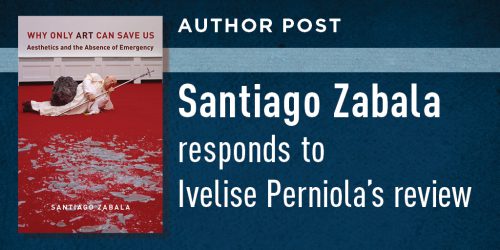Santiago Zabala: How to Be a European (Union) Philosopher
In recent weeks, Santiago Zabala, coauthor of Hermeneutic Communism: From Heidegger to Marx, has been writing about the importance of continental philosophy in addressing some of the current political, economic, and even existential crises.
In a recent op-ed in the New York Times, How to Be a European (Union) Philosopher, Zabala argues that the hermeneutic tradition, which has largely been forgotten by those making policy for the European Union, continues to offer a vital tool for the way we live and give meaning to our lives. Zabala writes, “We exist first and foremost as creatures who manage to question our own being and in this way project our lives. Without this distinctiveness we would not exist; that is, our lives would be reduced to a predetermined subordination to the dominant philosophical or political system.”
The E.U. with its emphasis on technocratic governance has relied on classification and hierarchies. This is not merely an objective system of governance but rather a system of thought that excludes various individuals and has ethical implications. The type of policy approaches used by the E.U. has ultimately served to exclude other types of thought that might challenge neoliberal orthodoxies.
Zabala concludes by writing:
The fact that the European Research Council funds predominantly analytic philosophy projects, as well as those subservient to the hard sciences, perhaps is an indication that they prefer intellectuals who submit “reality to reason” rather than fighting the ongoing exclusion of the most vulnerable citizens by those in power. The work of a philosopher in Europe must involve guarding being, namely the existential lives of those not in power, from systems of thought that seek to exclude them. Before the parentheses in this article’s title can be removed, the European Union must reconsider the existential nature not only of citizens but also of philosophy itself since it seems to have forgotten both.


